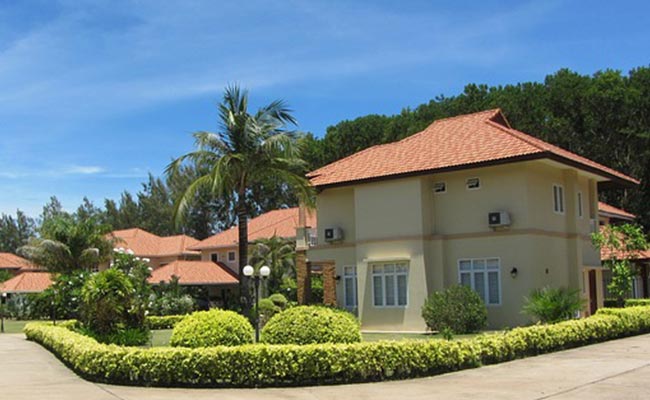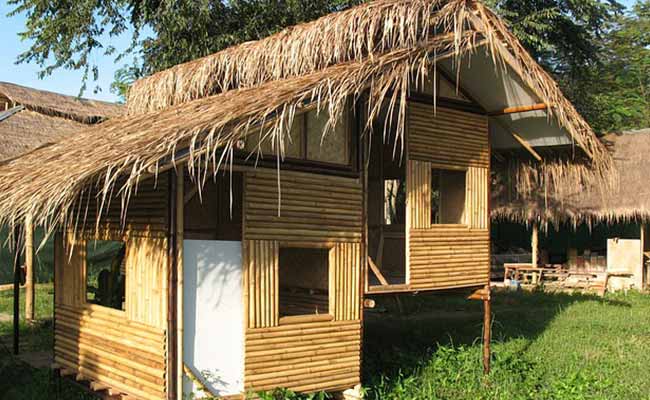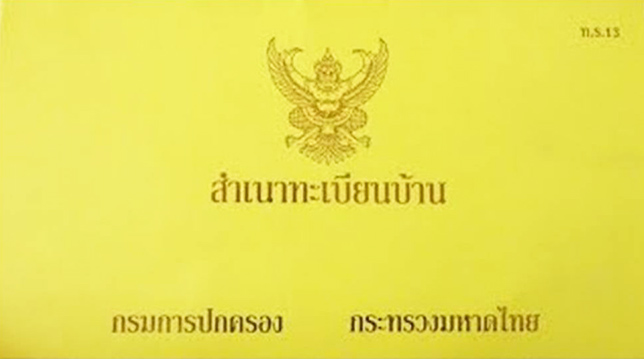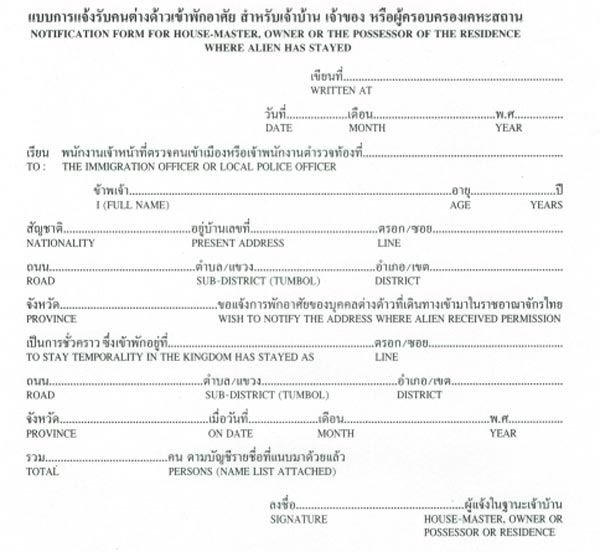“Didn't you know that foreigners can't buy land in Thailand”?
“Why did you spend so much on a house”?
We hear these questions way too much. Indeed, the web is littered with the same “I told you so” answers.
So here's my straight-talking guide to foreign property ownership in Thailand, and my two cents of personal advice too.
This will probably save you money and heartache, but don't worry, unlike those unscrupulous real estate agents, I'm not asking for commission.

The expat dream…
Buying Property in Thailand: A Straight-Talking Guide
1. Can I Buy a House in Thailand?
Yes, but you can't own the land it's on. The building structure can be legally owned and registered in your name.
2. I've heard that if you're married to a Thai you can buy land?
True. But you can't register it in your name and you have to waive your rights to the property.
Foreign nationals cannot own freehold land. A freehold land title must be registered in a Thai person's name or a company name.
3. So you're saying that if I pay for the land I will have no claim to it?
Correct. Moreover, it is common that the non-Thai spouse signs a declaration to say the funds used are the separate property of the Thai spouse.
So you're essentially paying and denying that you've paid for it.
4. What if I own a company, can I buy land that way?
Yes, you can buy land through a company. You will own 49% of the company and the remaining 51% will be Thai owned.
A share-transfer document can be signed afterwards, whereby Thai shareholders ‘sign-back' their rights to the foreign Director of the company (you).
5. I heard you could buy land with a BOI investment. Is this true?
Yes, it is true. You will need a 40 million Baht investment to bring this to fruition.
The Thailand ‘Board of Investment' (BOI) will allow you to buy and own freehold land up to 1 rai (1600 square meters) under section 96 of the 1999 Land Code Amendment Act.
The land can be used for residential purposes only.
The Office of the Board of Investment is a government agency under the Office of the Prime Minister. Its core roles and responsibilities are to promote valuable investment, both investment into Thailand and Thai overseas investment.
6. What about a house within a villa complex, can I own one of those?
Yes.
The typical arrangement here is that you own the building and have a 30-year lease on the land. However, you may have seen properties advertised with a 90-year lease, which is more in line with what you'd expect in the West.
According to the Civil and Commercial Code, a property lease can be renewed two consecutive times. So what the developer does is stipulate the allowance of two further 30-year extension periods in the contract. 30+30+30 makes up a 90-year lease.
Even if your lease is only 30 years, you may still be able to negotiate a new lease. It all depends on what the landowner wants to do with the land.
What you need to consider is that it is likely far more lucrative for a landowner to build a new complex and sell properties than it is to renew the leases of old properties.

Why not settle for one of these eco houses for less than 50K THB? Who cares what the neighbors think!
7. Is it possible to own a house freehold?
Yes. This is common on luxury so-called “branded properties”.
The developer registers the properties in the development as “units” because they typically look a bit different to houses, you know like those modern arty dwellings you get positioned along a hill overlooking the ocean.
This allows the developer to take advantage of the 51%-49% Thai-foreign ownership split rule, enabling the developer to sell 49% of the properties as freehold.
This is technically circumventing the law. But this is Thailand and it's allowed, apparently.
What is essential is that you have a lawyer do due diligence on the land a property is built on before you buy. You might have freehold, but you should also make sure the land has no building restrictions or leasehold of its own.
8. Can I own a condominium (freehold)?
Yes. The 1979 ‘Thai Condominium Act' allows foreigners to own the freehold of up to 49% of the total space of a development.
In this case the developer agrees to a minimum of 51% Thai occupancy and can then sell the other 49% to foreign nationals.
So you can own a condo outright, 100% in your name and with a freehold.
9. Where is the best place to search for properties?
If you want to buy or rent a condo or a house, check out PropertyScout here.
They have the largest selection of property in Thailand, and they don't charge the renter / buyer a fee. They take their fee from the landlord/seller.
10. I paid for a house on my partner's land. Can I sell it & get my money back?
Not unless they agree. You can't force her/him to sell the house because the house is on land you don't own.
So unless you can agree together to sell the land and the house then you are at a stalemate. He/she could buy you out of the house.
Or you could seek legal advice and try to force a sale of the land, so that you can take a cut for the house.
11. I have receipts for the furniture & fittings. Can I remove them?
You might be able to do this with the help of a lawyer, but certainly don't attempt to do this yourself, unless the landowner agrees.
If you start removing property from the house the police will be called and the landowner can have you removed from the house.
You can protest that it was you paid who for these things, but the police will state that “this is a civil matter that needs to be resolved in court”.
12. My partner is trying to kick me out of my own house. What can I do?
If your partner owns the land, there's not much you can do. You can stay put, but he/she could have you removed.
13. I want to build a house for my partner but this FAQ has worried me. Any advice?
If your partner owns the land, or you are “both” buying the land for the house to be built on, you can enter a lease arrangement.
Your partner can lease you the land for 30 years (renewable twice). This will at least give you the right to live in the house on the land.
If you have kids from a previous relationship and you are looking at this as an asset they can inherit, I'd think again. While they could inherit the house, your heirs are unlikely to want to live with your current partner, or his/her extended family, once you pass.
Your heirs won't own the land the house is on either, so trying to evict the tenants would be a fruitless endeavor.
14. Do you have any further advice for me?
Yes. As a general rule, never lend, give or invest more than you can afford to lose.
Know that any money you hand over for land or a house is likely to never be returned. If you want to own your own property then do so in your name.
Be careful with your money. There is many a story of a foreigner who went to Thailand with a decent retirement nest and ended up back home on social welfare.
The Bottom Line
Take a drive through rural Thailand: North, Northeast, South; take your pick.
In the deepest country bumpkin moo baans, you'll see huge “farang” homes sticking out like sore thumbs. Many of these properties are no longer occupied foreign nationals but by ex-partners.
Let's say you are retiring and have a nice 10 million Baht in the bank, plus your pension each month. Why blow 5 million Baht on a house in rural Isaan?
It's madness.
Why not spend 1 million Baht instead? You might be around a lot longer than you think, and you may need that money one day.
The honeymoon period doesn't last forever; we all know that to be true. You may well find yourself having to walk away from the relationship and start over.
Moreover, you don't want people thinking you have money to throw around, that you're the “rich farang”. This may attract negative attention and more fake friends that you'd like.
I'm not insinuating that all Thais are shallow and will want to befriend a rich foreigner to rip him off, but let's be sensible here…
If you're moving into a road largely comprised of corrugated shack houses, occupied by people who live on an average of $5 a day, and you rock up and build a palace on their doorstep, how do you think that will be received?
If you want to help your partner out by buying some land/building a house, by all means do so. But always assess your risk exposure beforehand!
Your Next Read: A Guide to Buying Land in Thailand
——
Disclaimer: You should know that I'm not a lawyer. If you are serious about buying land or property in Thailand, you should consult a lawyer for legal advice.
Tips to Save You Money
Want to rent or buy a property?
+ Get an international standard service (free) with PropertyScout.
Need life insurance, pension or investment advice?
+ Connect with my personal IFA using this form
Got medical insurance yet?
+ You should have. Get a quote on international cover here.
Last Updated on



Rich says
My Thai wife and I have been together 20 years living in England and are looking to move back to Thailand to retire.
We would like to buy chanote land and build a house all in her name. I’m confident there is little risk of her looking to cheat me, or for us to separate, but what would happen if she were to die before me?
Would I inherit the property? Or at least the proceeds if it had to be sold?
Mar 09, 2024 at 2:19 am
TheThailandLife says
Mar 09, 2024 at 3:54 pm
Matt says
fundamental but essential:
'As a general rule, never lend, give or invest more than you can afford to lose.'
I do have a question and perhaps it's me not reading this right:
re; 11. I have receipts for the furniture & fittings. Can I remove them?
Scenario 1: I just bought a house in Phuket -- and signed the lease... a year later or so I want to upgrade the furniture and re-decorate can I do this? or do I need the 'Land owners' permission?
Scenario 2: the garden in my 'imaginary villa' is looking tied I want to dig it up and put a new fresh bed of roses in and whilst I have a shovel in hand I'm thinking about adding an outside bath! do I need the 'Land owners' permission? would this contradict or risk general lease agreements? or as long as I don't hit a water main -- no one will bother?
Feb 18, 2023 at 11:02 am
TheThailandLife says
Feb 20, 2023 at 5:20 pm
Matt says
Feb 20, 2023 at 7:05 pm
TheThailandLife says
Feb 20, 2023 at 7:16 pm
Phil L says
Mar 27, 2021 at 7:32 pm
Samuel carpenter says
Aug 06, 2020 at 3:15 pm
Garry G says
And the web page appears "Happy". Gives a good feeling. Reflects your good personailty. Best wishes.
Apr 05, 2020 at 2:20 am
TheThailandLife says
Apr 05, 2020 at 9:02 pm
ray says
Mar 13, 2020 at 6:37 pm
Alexander Harris says
I've spent money on a house that sunk into the ground on one side,
Advised don't buy it. The thing i found in Thailand is they know best and they will pay you back straight away.Just words.
I should have took more notice of a little book called Money number 1.
The long and short of it, skint, is a good word.
And all the rules, if you can call them that, change at the drop of a fag end, or
a couple of baht. Place reminds me of pleasure Island. Beware.
Mar 13, 2020 at 10:39 am
Shyam Sunder Sharma says
Shyam
Mar 13, 2020 at 8:18 am
John says
Thanks. Where are those "eco houses" please?
John
Mar 13, 2020 at 6:12 am
TheThailandLife says
Mar 13, 2020 at 6:16 pm